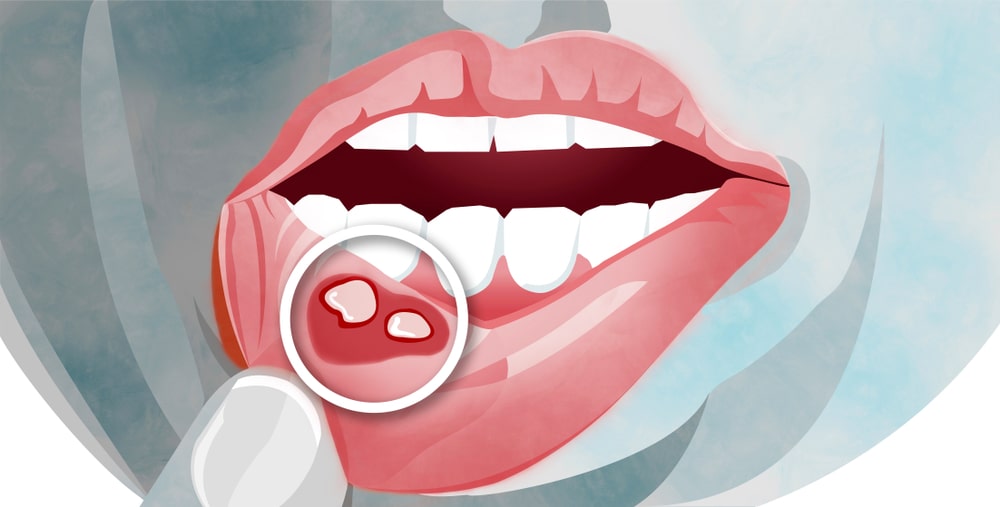Prevention of Mouth Ulcers: Many people suffer from recurrent ulcers in the mouth. These can be extremely painful. The most common form is called minor aphthous ulceration. Teenagers are most frequently affected, though many experience their first lesions well outside this age range. Usually, one to five small ulcers appear (less than 1 mm in diameter) on the inside of lips or cheeks, the floor of the mouth, or the tongue. The ulcers tend to be concentrated towards the front of the mouth. Before the ulcers appear, the patient may experience a burning or prickling sensation. The ulcers are painful, particularly if the tongue is involved, and may make speaking and eating difficult. The course of these ulcers varies from a few days to a little over two weeks, but most commonly they last for about 10 days. Some minor trauma such as vigorous toothbrushing or an irregular filling can be precipitating factors.
Mouth ulcers can also be precipitated by stress, illness, hormonal changes, menstruation, and deficiencies in vitamin B12, iron, and folic acid. Other more serious causes of mouth ulcers include herpes infection, Irritable Bowel Syndrome (IBS), and immune disorders. A more severe form of oral ulceration, called Major Aphthous Ulceration (MJAU) can affect any part of the oral mucosa, including the soft palate and the tonsillar area, and can extend into the oropharynx. The ulcers are larger than those seen in MIAU and last longer, up to periods of months in some cases.
There are other forms of oral ulceration, where, for example, the ulceration may be part of a syndrome involving ulceration of the eyes, genitalia, the nervous system, and joints. Because the cause of these ulcers is not known, prevention is difficult. It is important to seek the advice of a dentist who may decide to refer the more severe cases to a specialist in oral medicine for a more thorough investigation.
Prevention of Mouth Ulcers
Maintenance of a high level of oral hygiene will reduce the likelihood of secondary infection when ulcers are present; this of course can prove difficult since patients may find toothbrushing too painful. Covering agents, some containing choline salicylate, are also available though they can be difficult to apply. They also may be difficult to keep in place, for example, inside the lips, and on the tongue due to constant movement. The use of antiseptics, for example, chlorhexidine mouthwash is reported to be helpful by some patients. Topical steroids can also provide relief. In some females, there is complete remission from aphthous ulcers during pregnancy. Hence hormonal therapy has been tried with varied success. Local anesthetic lozenges have been used as a last resort to give the patient some relief, for example, when eating.
Make sure you also check our other amazing Article on : Prevention of Cold Sores
